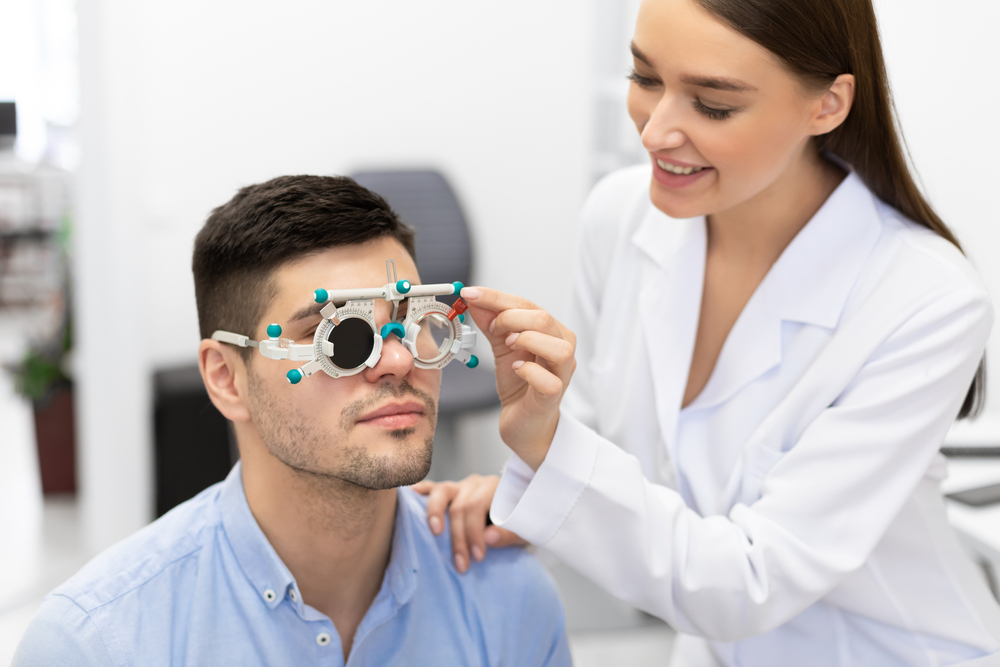Address:

Your eyes are your windows to the world, helping you navigate, connect, and experience life in vivid detail. However, maintaining optimal vision health goes beyond just seeing clearly—it’s about preserving your overall eye health for years to come. Regular comprehensive eye exams are the cornerstone of proactive eye care and a critical step in ensuring your eyes remain healthy and functional throughout your life.
Why Are Comprehensive Eye Exams Important?
Comprehensive eye exams are much more than vision tests. These thorough assessments evaluate the overall health of your eyes and can detect early signs of eye diseases, vision disorders, and even systemic health conditions. By identifying problems early, you and your eye doctor can take proactive steps to prevent complications and preserve your vision.
Detecting Eye Diseases Early
Many eye diseases, such as glaucoma, macular degeneration, and diabetic retinopathy, develop without noticeable symptoms in their early stages. A comprehensive eye exam can reveal these conditions before they cause irreversible damage, giving you the best chance at effective treatment.
Monitoring Vision Changes
Your vision can change over time due to age, lifestyle, or health factors. Regular exams ensure that any changes are detected and corrected promptly with updated prescriptions for glasses or contact lenses, keeping your vision sharp and comfortable.
Identifying Systemic Health Issues
Your eyes can provide valuable clues about your overall health. During a comprehensive eye exam, your optometrist might detect signs of systemic conditions such as diabetes, high blood pressure, or even certain cancers. Early detection can lead to timely treatment and improved outcomes.
What Happens During a Comprehensive Eye Exam?
A comprehensive eye exam typically includes several key evaluations to ensure a full picture of your eye health:
• Visual Acuity Test: Measures how clearly you can see at various distances.
• Refraction Test: Determines your prescription for glasses or contact lenses.
• Eye Pressure Test: Screens for glaucoma by measuring the pressure inside your eye.
• Retinal Exam: Examines the back of your eye, including the retina and optic nerve, to identify any abnormalities.
• Peripheral Vision Test: Checks for issues with your side vision, which may indicate neurological or ocular conditions.
These tests allow your optometrist to create a personalized care plan tailored to your unique needs.
How Often Should You Schedule an Eye Exam?
At Los Angeles Vision Center, we recommend annual comprehensive eye exams.
• Children (Ages 3-18): Annual exams help monitor eye development and detect vision issues that can impact learning.
• Adults (Ages 19-64): Yearly exams ensure any changes in vision or eye health are addressed promptly.
• Seniors (65+): Annual checkups are critical for detecting age-related conditions like cataracts or macular degeneration.
For those at high risk, more frequent eye exams may be necessary. Our optometrist can recommend a personalized schedule based on your individual needs.
Schedule Your Eye Exam with Los Angeles Vision Center Today
Your eyes play an essential role in your daily life, and taking proactive steps to maintain their health is vital. Regular comprehensive eye exams are the best way to detect potential issues early, monitor vision changes, and protect your overall well-being. Our state-of-the-art facility and expert team provide personalized care, ensuring that every eye exam is comprehensive, comfortable, and focused on your needs.
Schedule your comprehensive eye exam with Los Angeles Vision Center and take the first step toward clear, healthy vision. Visit our office in Los Angeles, California, or call (323) 934-2020 to book an appointment today.





